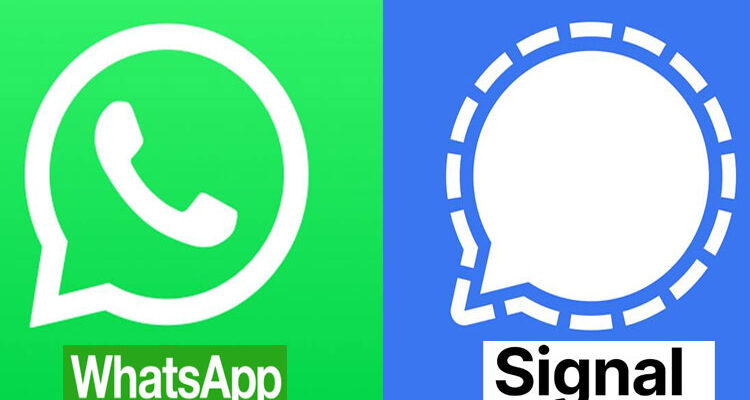WhatsApp introduced a revised Privacy Policy last month together with a verdict: agree to the terms or delete WhatsApp from your mobile phone. However, the latest privacy policy was not very apparent, and WhatsApp might share more personal and sensitive information with Facebook, its parent organization. It was unusually harsh, with several participants threatening to cancel using the service. It was not exactly a surprise.
WhatsApp immediately made a correction to clarify that the new policy only influences the interactions between participants’ accounts and companies, i.e. no acquaintances, and does not enforce latest information collection. The Messaging App also postponed three months in introducing the set of policies. Consequently, WhatsApp stated, the new policy does not influence the content of your Chat, including WhatsApp, Facebook or governmental authorities. The latest policy will not allow anyone to view content from messages. However, the harm was caused by now. The mishandled efforts at correspondence made the public conscious that WhatsApp wants to collect a bunch of content, and that some can be communicated with Facebook. In the week prior to WhatsApp’s announcement of the modification on January 4, Signal was installed 246,000 times around the world and 8.8 m times a week later.
There are some similar characteristics with both messaging apps. Signal and WhatsApp provide end-to-end encryption unlike regular SMS messages and other messages sent via a mobile network. This encryption hides posts when someone intercepts or discovers them on a server. The two opposing applications allow users to freely chat via Wi-Fi or mobile data, making it common for international communications. But the two implementations vary considerably in terms of ownership, protection and usability. Signal has a rather new non-profit and places special importance on security, while WhatsApp, which is operated on Facebook, seems to be smoother to use. However, below given are few reasons when one might consider using Signal instead of WhatsApp.
1. Open Source
The source code for Signal is released to be used and tested under a GPLv3 client license and an AGPLv3 server license. Which suggests that you might see what is happening in it or use the experience of people who look at the code and know exactly what they’re looking for.
2. Less potential
WhatsApp is a broader service that allows malicious hackers to launch, but its code editor is a centralized sealed box which can take longer to find hazardous weaknesses. Any system can experience shortcomings and finally, Signal has overcome a number of vulnerabilities. However, the closed-source code of WhatsApp not only does use the Open Signal Protocol, but also does not allow a variety of possible goals to be exploited. One particularly alarming example was WhatsApp VoIP stack vulnerability, used by intelligence agencies in 2019 to inject spyware.
3. Better security
Signal is first accompanied by new safety features. For reference, messages disappeared within a certain period of time since 2016, but a significant percentage of WhatsApp users are still testing the feature. Other mainstream as well as beta signal features which are not included with WhatsApp users encompass view once media messages, encrypted profiles, the Android incognito keyboard switch to prevent Google from sending back your typing history and backups which do not revert on unencrypted Google Drive or iCloud storage. Signal also has a rather wider array of customers that are likely to attract Linux users in security and data analysis fields with a dedicated Client and WhatsApp instructs them to their web app.
4. User interface
Signal has features that are customizable than WhatsApp. The software can be used on iOS, Android and desktop. Other images, videos, links and other files can be sent to each other by users. Like WhatsApp, users can set the time to discontinue messages and images. Audio, video and template groups of up to 150 individuals may be formed by the user. Signal’s beta edition has more than traditional applications to sell. The beta edition provides chat rooms for designating moderators and sending group invites.
5. Own signal server
Some other strength of open source software would be that, if you are eager to do so, you can experiment with it. For personal or business purposes, you probably would not want or need a Signal server yourself. It is a mass communication platform that is not meant to scale, it’s difficult to build and presently there are no pluggable models to enable deployment. However, you can learn a great deal about how a system works by developing a classification model with a stick. If you are technically aware of this. It is not easy but there are group guidelines to allow users to operate a message server and some intriguing versions, like a decentralized messaging framework.
6. Screen security
The application helps keep anyone from taking chat screenshots. There is a Screen Protection feature that prevents all chats from screenshots. The Settings section > Privacy > Security screen can be used to allow this choice. Although you can press on a chat image on any other device, the Screen Protection still provides a good functionality for your users in any private messages app.
7. Group invitation privacy
In Signal when created a group, you can’t immediately add all of your mates to a group. Signal sends an invitation when you enter the names of people you want to create and they have to approve the invitation to join the party. On WhatsApp it is possible only if you change the “Apart from” configuration for “My Contacts.”
8. Incognito Keyboard
This is an awesome feature that would not save what you type on your keyboard. After activating the Incognito keyboard, it would stop learning from the input you type. No records may be acknowledged to be used afterward in auto completion or as a suggestion by your keyboard encyclopedia. To do so, go to Section Settings > Privacy > Activate Incognito Keyboard.
Signal is a private messaging application that provides not only end-to-end encryption, but also confidentiality-oriented features and minimizes data collection. After new privacy policy introduced by WhatsApp, it might be a great idea to switch to Signal. Moreover, considering the given reasons above, it can actually be a good change to switch to a new app.




